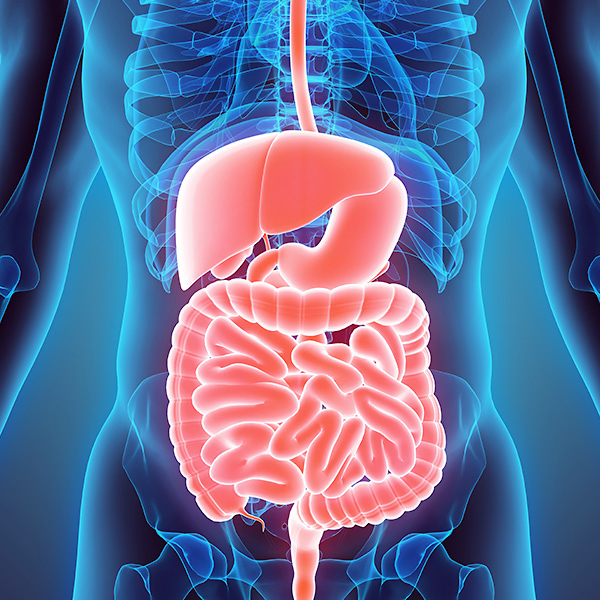Gastrointestinal Conditions Treated at Loyola Medicine
Functional bowel disorders are conditions characterized by chronic gastrointestinal symptoms without identifiable structural or biochemical abnormalities. These conditions arise from dysregulation between the central nervous system and the gastrointestinal tract, affecting motility, sensitivity, immune function, and microbiota.
The clinical specialists at Loyola are experts at diagnosing and managing patients with the following conditions:
- Irritable bowel syndrome
- Chronic constipation
- Diarrhea
- Fecal incontinence
- Functional dyspepsia
- Carbohydrate malabsorption/intolerance
- Small intestinal bacterial overgrowth
- Gastroparesis
- Cyclic vomiting syndrome
- Chronic nausea and vomiting
- Chronic Intestinal Pseudo-obstruction
- Pelvic Floor Dysfunction
- Rectal Prolapse
Diagnostic Services Offered for Inflammatory Bowel Disease
Many diagnostic studies are available to help evaluate and differentiate functional bowel disorders from other gastrointestinal conditions, such as inflammatory bowel disease. While functional disorders often present without structural abnormalities, these tests help rule out organic disease, assess motility, and evaluate subtle physiologic dysfunctions contributing to symptoms.
Common GI Diagnostic Studies
Upper Endoscopy
Used to evaluate the esophagus, stomach, and upper part of the small intestine. It helps rule out inflammation, ulcers, or structural abnormalities in patients with upper GI symptoms such as nausea, vomiting, or early satiety.
Colonoscopy
A procedure to examine the colon and rectum, often used to rule out structural or inflammatory causes of symptoms such as diarrhea, constipation, or rectal bleeding. Biopsies can help exclude microscopic colitis or other mucosal diseases.
Anorectal Manometry
Assesses the function of the muscles and nerves in the rectum and anus. It is particularly useful in evaluating chronic constipation, fecal incontinence, and defecatory disorders.
Breath Testing for Lactose and Fructose Malabsorption
Non-invasive tests that measure hydrogen and methane in the breath after ingestion of specific sugars. These tests can identify carbohydrate malabsorption, which can mimic or worsen functional GI symptoms.
Breath Testing for Small Intestinal Bacterial Overgrowth
Measures hydrogen and methane production after ingestion of a sugar substrate (typically glucose or lactulose). Abnormal early gas production may indicate excessive bacteria in the small intestine, which can cause bloating, gas, and diarrhea.
Gastric Emptying Studies
A nuclear medicine test that evaluates the rate at which the stomach empties food. Delayed gastric emptying (gastroparesis) or rapid transit may contribute to symptoms such as nausea, fullness, or bloating.
Small Bowel Radiographic Series
A series of x-rays taken after ingesting contrast material to visualize the small intestine. Although less commonly used today, it may help detect subtle strictures or transit abnormalities in select cases.
Cross-sectional Imaging (CT and MRI)
CT enterography or MR enterography provides detailed images of the bowel and surrounding structures. These modalities can help exclude inflammation, masses, or vascular abnormalities when functional symptoms raise concern for structural pathology.
Defecography (MR or Fluoroscopic)
Provides imaging during simulated defecation to assess pelvic floor motion and structural abnormalities. Useful in patients with chronic constipation or suspected pelvic floor dysfunction.


